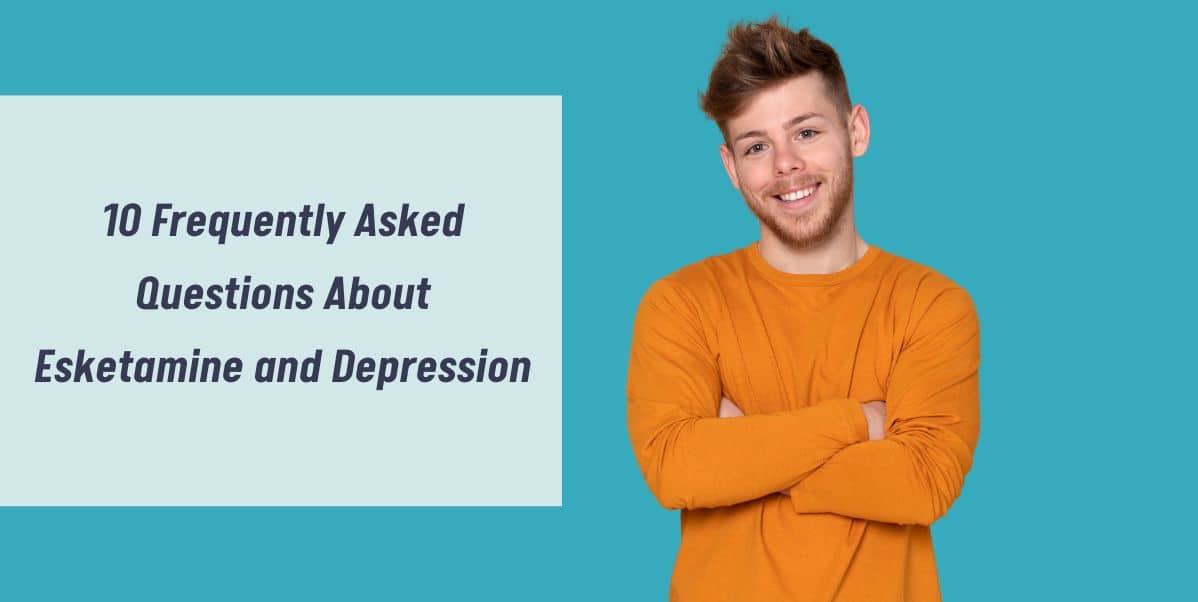
In the evolving landscape of psychiatric care, especially within clinics at the cutting edge of depression treatments, discussions about innovative solutions like Esketamine and Transcranial Magnetic Stimulation (TMS) Therapy are gaining momentum. Esketamine, a more potent form of ketamine that the FDA has approved, stands out in these conversations due to its potential in treating major depression. A common inquiry, however, emerges: Does ketamine, and by extension Esketamine, belong to the opioid category?
Understanding Ketamine’s Classification
Discovered in the 1960s for use as an anesthesia in surgeries, ketamine has carved out new avenues for medical and therapeutic applications. It differs from opioids, which derive from the opium poppy plant and primarily relieve pain by acting on the brain’s opioid receptors. Ketamine, on the other hand, targets the N-methyl-D-aspartate (NMDA) receptors involved in mood regulation and pain perception.
Esketamine: The Next Step in Depression Treatment
Esketamine, ketamine’s more potent enantiomer, has received FDA approval for treating resistant depression, marking a significant advancement in psychiatric care. This nasal-administered treatment offers a less invasive option for patients struggling with major depressive disorder (MDD) that has not improved with traditional treatments.
The Mechanism Behind Esketamine
By modulating glutamate release, a neurotransmitter linked to learning and memory, Esketamine fosters new neural connections in the brain. This process can provide rapid relief from depressive symptoms, in contrast to opioids that offer analgesic effects without directly addressing depression’s underlying causes.
A Closer Look at Opioids
Opioids work by binding to opioid receptors in the brain, spinal cord, and other body areas, reducing pain perception. Despite their effectiveness in pain relief, opioids carry a high risk of dependence and addiction. This class includes drugs like morphine, heroin, fentanyl, and prescription pain relievers.
Pros and Cons of Esketamine Treatment
Pros:
- Quickly reduces depressive symptoms, often within hours.
- Offers a new treatment option for those resistant to traditional therapies.
- Ensures safety and efficacy with medical supervision during administration.
Cons:
- Possible side effects include dissociation, dizziness, and nausea.
- Requires clinical setting administration.
- May not suit everyone, with effectiveness varying among patients.
Web Ratings and Patient Testimonials
Esketamine has garnered positive reviews from patients and healthcare professionals, with many success stories emphasizing its effectiveness in overcoming treatment-resistant depression. Clinical trials and patient testimonials highlight its potential to revolutionize depression treatment, providing hope where other medications have failed.
FAQs About Esketamine and Depression

- What sets Esketamine apart from traditional antidepressants?
- Esketamine acts quickly, alleviating symptoms within hours, unlike traditional antidepressants, which may take weeks to become effective.
- How safe is Esketamine treatment?
- Esketamine is safe and effective when administered under professional supervision in a clinical setting.
- Who can use Esketamine for depression?
- Esketamine is specifically for treating resistant depression. Healthcare professionals need to evaluate its suitability for each patient.
- What is the Esketamine treatment schedule?
- Treatment starts with two sessions per week, followed by less frequent maintenance doses.
- Are there long-term effects of using Esketamine?
- Ongoing research suggests Esketamine is safe for long-term use under medical guidance.
- Does Esketamine pose a risk of addiction?
- Esketamine has a low abuse potential, especially when used as directed in a clinical setting.
- What should I expect during treatment?
- Immediate mood improvement is common, with some patients experiencing transient dissociative or perceptual changes during administration.
- How does Esketamine affect the brain?
- It promotes new neural connections, potentially reversing the negative effects of stress and depression on the brain.
- Do insurance plans cover Esketamine?
- Coverage varies, but many insurance plans offer partial or full coverage for Esketamine treatment.
- How do I know if Esketamine is right for me?
- A consultation with a healthcare professional specializing in depression treatments is the best way to determine if Esketamine suits your situation.
Estekamine Clinics in Florida
Ketamine, and by extension Esketamine, are not opioids. These treatments offer a new hope for individuals battling treatment-resistant depression. At My TMS, our psychiatric clinic is committed to providing advanced treatments like Esketamine and TMS Therapy to help patients overcome the challenges of depression.
If you or someone you know is struggling with major depression and seeking alternative treatments, we invite you to contact us for a free Esketamine screening. Explore this innovative treatment option with us and take the first step towards a brighter, more hopeful future.


